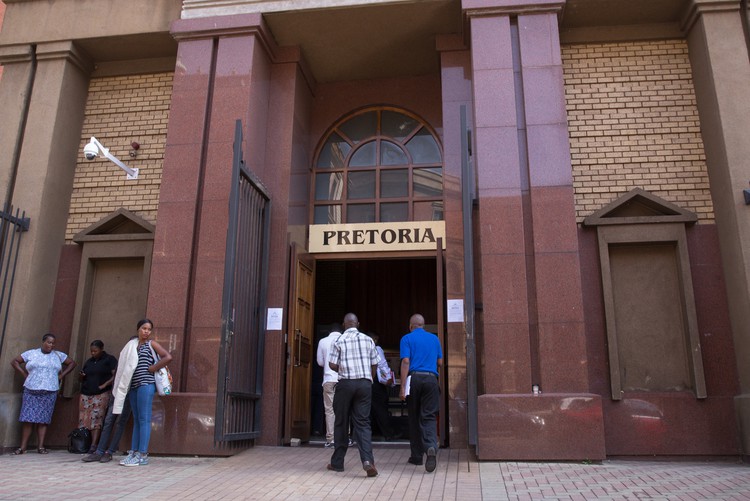
Information on late judgments at all courts has not been made available by the Chief Justice’s office in spite of repeated requests. Archive photo: Ashraf Hendricks
2 April 2019
The Chief Justice’s office has failed to respond to a request under the Promotion of Access to Information Act (PAIA) to provide the list of late reserved judgments for all courts.
GroundUp filed the request on 1 March. We subsequently sent two follow up emails. We have received no response from Nathi Mncube, the spokesperson for the judiciary, who is based in the Chief Justice’s office.
In September GroundUp obtained a list of late judgments from Mncube and published it. But the list contained numerous errors. Since then we have on numerous occasions requested a correct list, without success. This is despite receiving a letter from Mncube on 28 September that stated, “We expect to be in a position to provide an updated report by end of business on 3 October 2018.”
GroundUp has repeatedly reported on the problem of late judgments at the Western Cape High Court. We have not been able to do this for other courts.
In 2014 Chief Justice Mogoeng Mogoeng set out norms for judges. One of these is that judges should deliver judgment within three months of reserving judgment.
The norms had the unanimous support of the heads of court. The judiciary’s commitment to these norms was emphasised last year in a much-publicised Judiciary Annual Report presented by Mogoeng. It stated that the Chief Justice is responsible for the “monitoring and evaluation of the performance of each Judicial Officer, as well as the monitoring and implementation of Norms and Standards for the exercise of leadership and judicial functions of all courts”.
This week the Judicial Services Commission is holding hearings that may result in sitting judges being appointed to the Supreme Court of Appeal and the Constitutional Court. The commission will have to make its decision without the benefit of important information on whether or not judges have been delivering their judgments on time.
UPDATE at 14:25 on 2 April: Shortly after publication a reader alerted GroundUp to a document on the Judiciary’s website which appears to be the list of late reserved judgments as of 27 February. Despite numerous requests, the spokesperson for the Judiciary, Nathi Mncube, failed to provide us with this document.